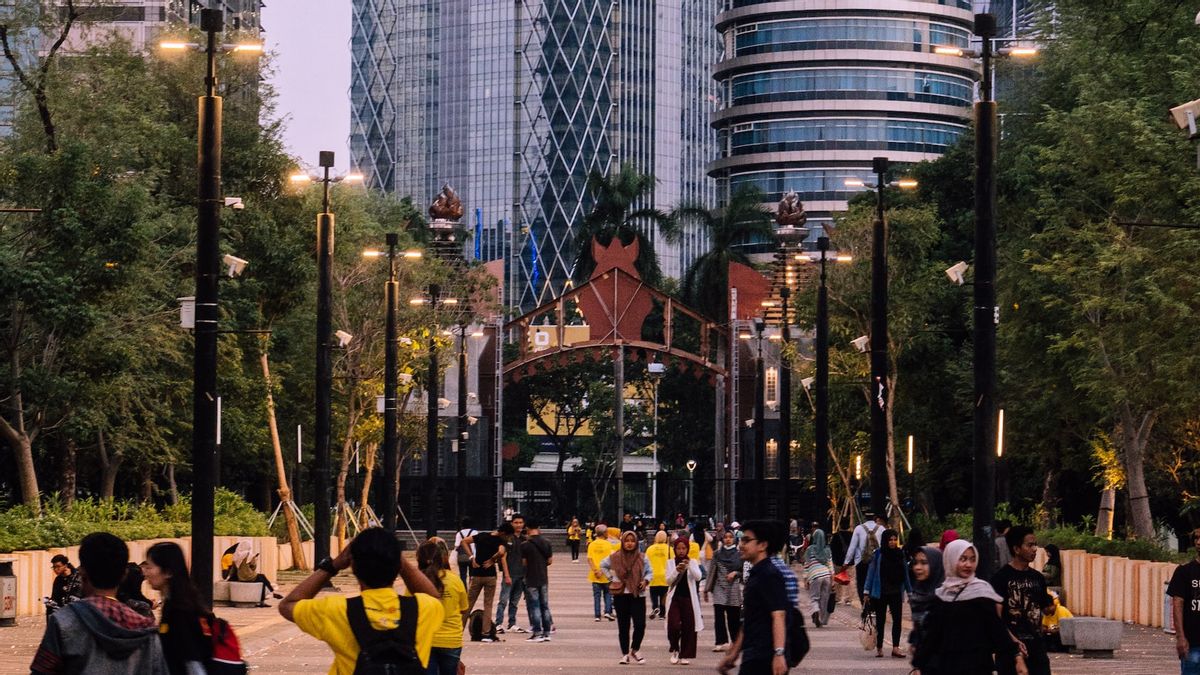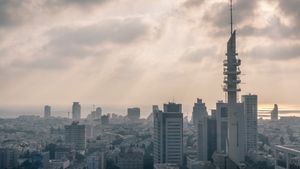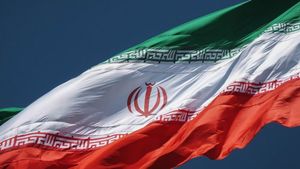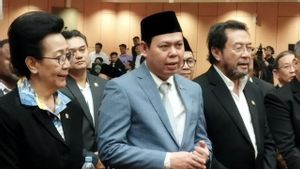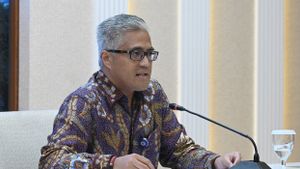JAKARTA - The plan to implement working hours arrangements in Jakarta has not yet come to light. In fact, one potential problem will arise if the division of entry and return hours is enforced.
Head of the DKI Jakarta Transportation Agency, Syafrin Liputo, is worried that if the direct working hours are implemented, it will make it difficult for public transport operators.
This is because, usually, public transportation managers have reduced the intensity of their stopping time or transportation headway outside of peak hours because people's mobility is starting to decrease.
"The distribution of working hours, precisely those who currently use their public transportation services, are actually affected. Because, during hours are not busy, operators usually reduce headways," Syafrin told reporters, Thursday, December 1.
The potential for this problem was revealed in the results of a public trial of the plan to regulate working hours based on input from a number of parties, ranging from transportation experts and employers' associations.
If the working hours are implemented, Syafrin estimates that there will be 17 hours a period of time for the mobility of employees to enter and return to work in one day. Meanwhile, if public transportation has to increase the headway again, this will actually burden operators in terms of operational costs.
"Of course, there will be additional costs from the operational side and so on. Therefore, what was reminded yesterday was that at this time it should not be limited to high economic costs from other sectors," explained Syafrin.
Separately, Deputy Head of the DKI Jakarta Transportation Agency, Chaidir, revealed another problem in the plan to regulate working hours, namely the absence of regulations that regulate the implementation of the distribution of working hours for employees in Jakarta.
This is because it was revealed that the division of working hours for company employees did not have a legal basis. Law Number 22 of 2009 concerning Road Traffic and Transportation (UU LLAJ) does not regulate efforts to reduce congestion by determining working hours.
"Judging from the experts who conveyed (inputs), it is indeed to overcome congestion in the regulation of working hours, if it is related to Law Number 22 of 2009 it does not exist," said Deputy Head of DKI Transportation Agency Chaidir at the Jatibaru Technical Service building, Central Jakarta, some time ago.
For information, the discourse on regulating working hours for DKI Jakarta was previously proposed by the Director of Traffic of the Polda Metro Jaya, Kombes Latif Usman. He said the working hours were made as an effort to reduce congestion by preventing people from doing activities at the same time.
Some time ago, Latif said, the percentage of road congestion in Jakarta currently reaches 48 percent at leaving and returning from work, causing extraordinary and uncomfortable congestion for all road users.
The English, Chinese, Japanese, Arabic, and French versions are automatically generated by the AI. So there may still be inaccuracies in translating, please always see Indonesian as our main language. (system supported by DigitalSiber.id)
